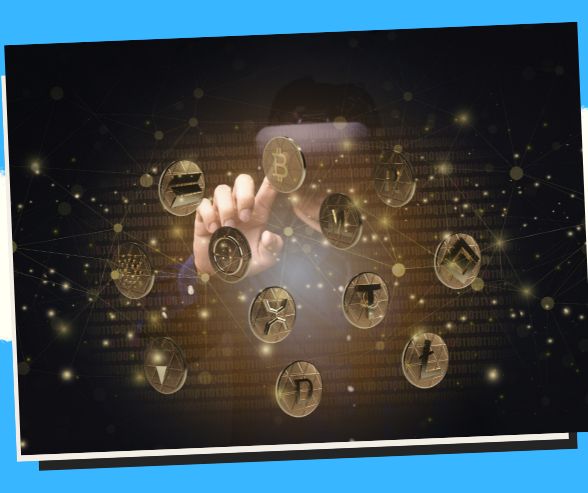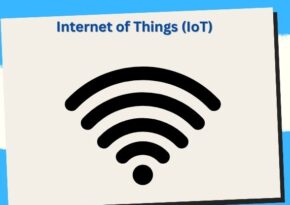
Code of Trust: How Smart Contracts Automate Blockchain Transactions!
Explore the intersection of technology and finance with smart contracts—a groundbreaking feature on the blockchain that enables secure, automated, and tamper-proof transactions.
Smart Contracts: Automating Transactions on the Blockchain 📜🔗🤖
In the realm of blockchain technology, smart contracts stand as one of the most revolutionary and impactful innovations. These self-executing contracts not only automate and streamline transactions but also offer increased security and transparency. As the backbone of decentralized applications (DApps) and the cornerstone of various industries, smart contracts are reshaping the way agreements are made and fulfilled. In this article, we delve into the concept of smart contracts, their applications, benefits, and the potential they hold for transforming traditional business processes.
Understanding Smart Contracts
A smart contract is a computer program that runs on a blockchain network and automatically executes predefined actions when certain conditions are met. Unlike traditional contracts that require intermediaries for enforcement, smart contracts eliminate the need for intermediaries by executing actions in a trustless and automated manner. They are written in code, stored on the blockchain, and are tamper-proof and transparent.
How Smart Contracts Work
Smart contracts work based on the “if-then” logic. When certain conditions (the “if”) are met, the contract automatically triggers specified actions (the “then”). These conditions are encoded into the contract’s code and are verified by the network nodes. Once the conditions are met and validated, the contract executes the predefined actions without the need for manual intervention.
Applications of Smart Contracts
Smart contracts have a wide range of applications across various industries:
- Supply Chain Management: Smart contracts can automate the tracking and verification of goods as they move through the supply chain, ensuring transparency and reducing fraud.
- Real Estate: Property transactions can be streamlined by using smart contracts to automate the transfer of ownership and release of funds when conditions like inspections and documentation are met.
- Finance: Smart contracts can facilitate automatic and instantaneous settlement of financial transactions, such as cross-border payments, derivatives, and insurance claims.
- Healthcare: Medical records and patient data can be securely managed and shared using smart contracts, enhancing data privacy and interoperability.
- Digital Identity: Smart contracts can be used to create secure and tamper-proof digital identities, simplifying processes like user authentication and verification.
- Gaming: In the gaming industry, smart contracts enable the creation of decentralized applications for in-game item trading, virtual property ownership, and provably fair games.
Benefits of Smart Contracts
The adoption of smart contracts offers several compelling benefits:
- Automation: Smart contracts automate processes, reducing the need for intermediaries and human intervention, which in turn enhances efficiency and reduces costs.
- Trust: Transactions executed through smart contracts are transparent and tamper-proof, fostering trust between parties and minimizing the risk of fraud.
- Accuracy: Human errors associated with manual data entry and processing are minimized, as the code in smart contracts ensures accuracy.
- Speed: Smart contracts execute transactions in real-time, eliminating delays that are typical in traditional processes.
- Cost Savings: The removal of intermediaries and the increased efficiency lead to cost savings for businesses and individuals.
- Global Accessibility: Smart contracts operate on blockchain networks accessible over the internet, enabling global participation and accessibility.
Limitations and Challenges
While smart contracts offer numerous advantages, they also face challenges:
- Immutability: Once a smart contract is deployed, it cannot be altered. This can be problematic if errors are discovered after deployment.
- Complexity: Developing and auditing smart contracts require specialized skills, and errors in the code can lead to vulnerabilities and security breaches.
- Legal Recognition: Legal frameworks are still evolving to recognize and enforce smart contracts. Disputes arising from code execution may require legal interpretation.
- Oracles: Smart contracts rely on external data for decision-making. These external data sources, known as oracles, introduce potential points of failure and manipulation.
Evolving Landscape and Future Potential
The landscape of smart contracts continues to evolve as blockchain technology matures. Ethereum, a popular blockchain platform, pioneered the concept of smart contracts, and subsequent networks have built upon and expanded their capabilities. Innovations such as more advanced programming languages, interoperability between blockchains, and scalability solutions are driving the next phase of smart contract development.
As adoption grows, smart contracts are poised to transform not only business processes but also the legal and regulatory landscapes. Governments and organizations are exploring ways to integrate smart contracts into their operations to improve efficiency and transparency.
Closing Thoughts
Smart contracts are at the heart of the blockchain revolution, offering a paradigm shift in how agreements are formed and executed. Their ability to automate processes, eliminate intermediaries, and enhance security has wide-ranging implications for industries across the globe. As technology continues to mature and challenges are addressed, smart contracts have the potential to usher in a new era of efficiency, trust, and innovation. By bridging the gap between code and contracts, smart contracts are reshaping the way we conduct business and interact with one another. 📊🏢🌐
Related Queries
🔗💼 Smart Contracts: Automating Blockchain Transactions!
💡⚙️ The Smart Contract Revolution: Automated Transactions!
🌐📈 Future of Transactions: Smart Contracts on Blockchain!
💼🔐 Unlocking Blockchain Efficiency: Smart Contracts!
🏛️🔗 The Code of Trust: Smart Contracts on Blockchain!
🔑🛡️ Secure Automation: Smart Contracts on Blockchain!
💱🌐 Automating Transactions: Smart Contracts at Play!
🚀⚖️ Smart Contracts and Efficiency in Transactions!
🌐📄 Smart Contracts: Blockchain’s Automation Marvels!
💰💼 Smart Contracts: Elevating Blockchain Transactions!
Save/Share this story with QR CODE
Disclaimer
This article is for informational purposes only and does not constitute endorsement of any specific technologies or methodologies and financial advice or endorsement of any specific products or services.
📩 Need to get in touch?
Feel free to Email Us for comments, suggestions, reviews, or anything else.
We appreciate your reading. 😊Simple Ways To Say Thanks & Support Us:
1.) ❤️GIVE A TIP. Send a small donation thru Paypal😊❤️
Your DONATION will be used to fund and maintain NEXTGENDAY.com
Subscribers in the Philippines can make donations to mobile number 0917 906 3081, thru GCash.
3.) 🛒 BUY or SIGN UP to our AFFILIATE PARTNERS.
4.) 👍 Give this news article a THUMBS UP, and Leave a Comment (at Least Five Words).
AFFILIATE PARTNERS

World Class Nutritional Supplements - Buy Highest Quality Products, Purest Most Healthy Ingredients, Direct to your Door! Up to 90% OFF.
Join LiveGood Today - A company created to satisfy the world's most demanding leaders and entrepreneurs, with the best compensation plan today.



 Business Technology, Finance Technology & Information Technology
Business Technology, Finance Technology & Information Technology





